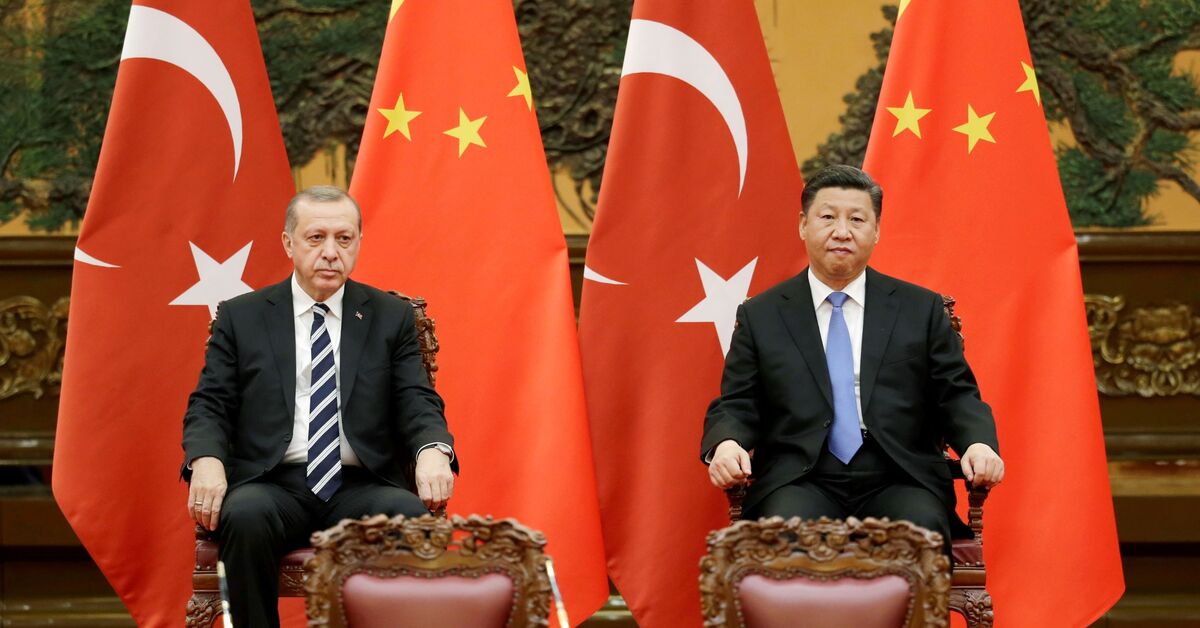What is delaying Turkey’s ground operation in northern Syria?
EXPLAINER
Turkish President Erdogan has said that his country will force the YPG away from the Turkey-Syria border, but a much-threatened ground operation has yet to begin.
Going back as far as June, Turkish President Recep Tayyip Erdogan has said that his country’s military would soon begin a new ground operation in northern Syria with the express aim of defeating the predominantly-Kurdish People’s Protection Units (YPG), and forcing them out of the regions they control on the Turkey-Syria border.
Turkey says that is necessary for security reasons, after blaming a recent Istanbul bombing, as well as previous attacks, on the YPG and affiliated groups.
The operation has appeared to be on the verge of beginning in recent days, but so far, Turkey has instead confined itself to air attacks and shelling.
Let us take a closer look at whether the Turkish operation will happen, and why Ankara is so adamant that it should go ahead.
How likely is a Turkish ground operation in northern Syria?
- Despite signalling that it wanted to begin a new ground operation in Syria back in June, Turkey has faced resistance from several international powers involved in Syria, including Iran, Russia and the United States.
- Turkey has often avoided carrying out military operations in Syria without the tacit acceptance of at least some of those parties. Russia’s position is particularly important, considering its strong presence in Syria, and the Turkish desire to avoid a confrontation with Russia, which backs the Syrian government.
- Negotiations between Russia and Turkey are now ongoing over the planned operation. Turkish sources told Al Jazeera that Russia is working to meet Turkey’s demands in northern Syria, so as to avoid a Turkish ground operation against the People’s Protection Units.
- The sources added that Turkey had given an unspecified deadline for its demands to be responded to, or it would begin its operation.
What is Turkey demanding?
- The Turkish sources said that Ankara was demanding that the Syrian Democratic Forces (SDF), which is largely made up of the People’s Protection Units, withdraw from the areas of Manbij, Kobane (Ayn al-Arab) and Tal Rifaat – which have all been previously named by Erdogan as targets for the Turkish operation.
- The sources added that Turkey has also said that Syrian government forces must replace the SDF in those areas.
- Erdogan has said that Turkey needs “no permission” to do what is necessary to protect its borders and its security.
What is the SDF’s position?
- The Syrian Democratic Forces has called on Russia and the US to do more to stop Turkey from conducting an operation. On Tuesday, the head of the SDF, Mazloum Abdi, said that he wanted a stronger response from the US, despite American assurances that they would attempt to stop Turkey from conducting an operation. Abdi also said that there had been unprecedented Turkish reinforcements along the border.
- The US has been the main backer of the SDF and partnered with it to defeat the ISIL (ISIS) group.
- Abdi said on Saturday that operations against ISIL had stopped as a result of Turkish air attacks on SDF positions, in an apparent attempt to pressure the US to step up its attempts to stop the planned Turkish operation.
- On Monday, the SDF’s spokesman, Siamand Ali, said that Alexander Chiako, the head of Russia’s forces in Syria, had met Abdi. Another SDF spokesperson, Aram Hanna, also said on Monday that the Russians had presented Turkey’s demands to the SDF, but that they had been rejected.
Why does Turkey want to conduct an operation in northern Syria?
- Turkey considers the People’s Protection Units, and by extension the SDF, to be the Syrian wing of the Kurdistan Workers’ Party or the PKK.
- The Kurdistan Workers’ Party has conducted a war against the Turkish state since 1984 and is considered a “terrorist” organisation by Turkey, the US and the European Union.
- The PKK and its affiliates have conducted numerous attacks in Turkey, while the Turkish military and security forces have launched operations against the Kurdistan Workers’ Party in southeastern Turkey and northern Iraq, as well as against the People’s Protection Units in northern Syria.
- On November 13, a bombing in Istanbul killed six people. The Turkish authorities blamed the Kurdistan Workers’ Party and the People’s Protection Units, who denied any involvement.
- Turkey believes that its allies, particularly in the West, do not take the security threats posed against it by the PKK seriously, and is particularly opposed to Western backing for the Syrian Democratic Forces as part of the anti-ISIL coalition.
Will Turkey restore ties with the Syrian government?
- Turkey has long supported the Syrian opposition to President Bashar al-Assad during the war in Syria, which began after government forces violently repressed a peaceful mass uprising in 2011.
- Turkey has become home to millions of Syrian refugees, many of them opposed to al-Assad, and also protects Syrian-opposition-controlled territory in the north of the country.
- However, the Turkish government has indicated that it would prefer Syrian government forces to the SDF in areas along the Syrian border with Turkey, as a means of compromising with Russia.
- On Sunday, Erdogan said that relations may “get on track” with Syria. He compared a potential reconciliation with Damascus to recent moves to end a long-running dispute with Egypt.


